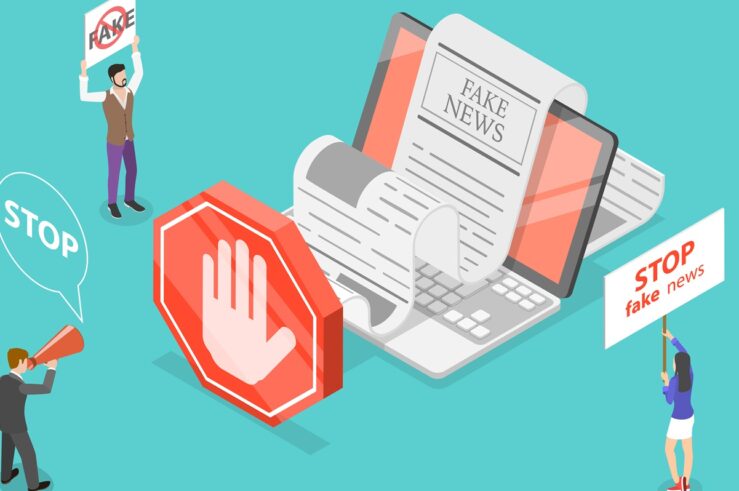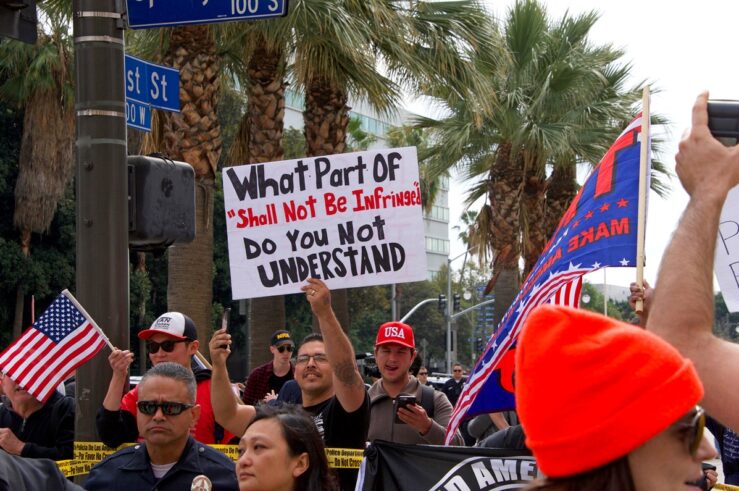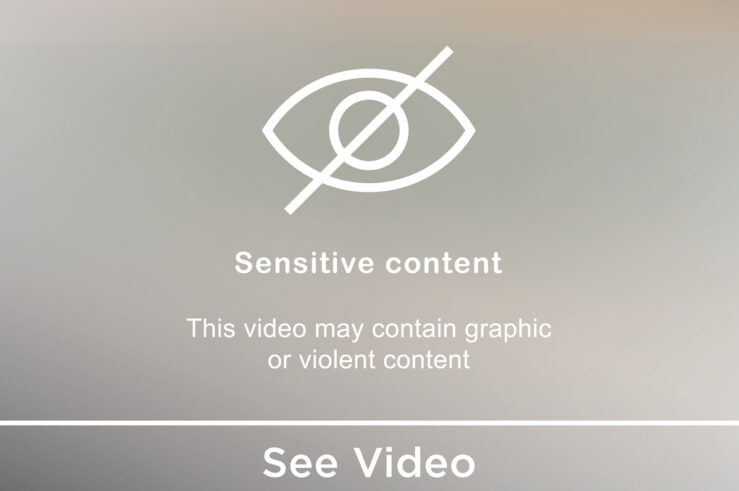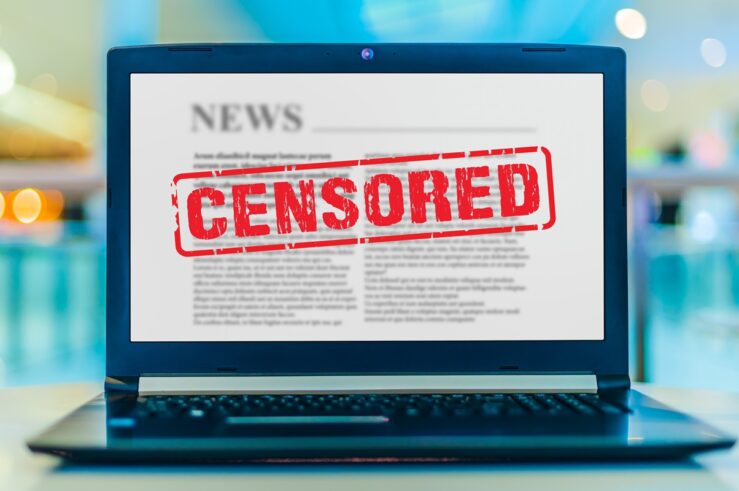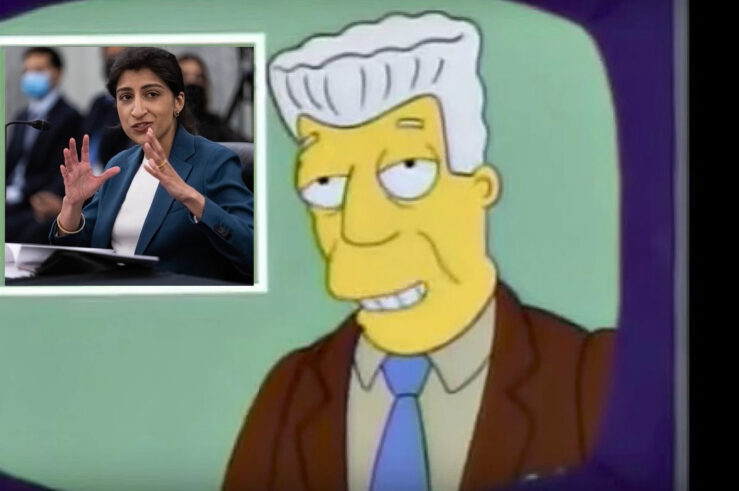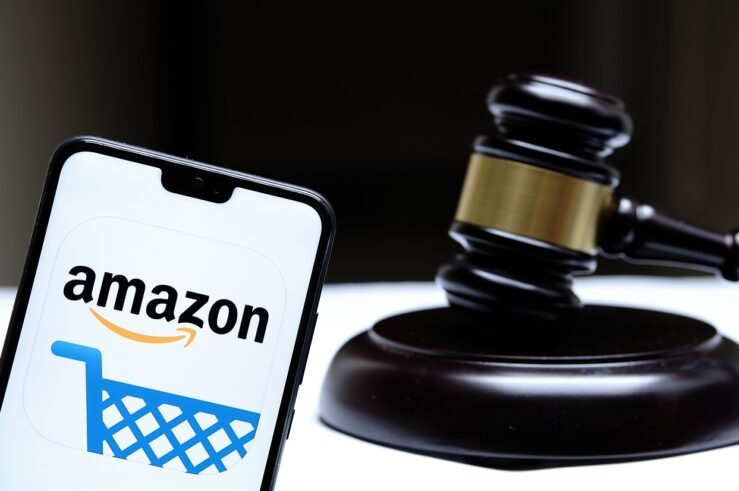Showing archive for: “US Constitution”
What Do the NetChoice Cases Mean for Online Speech?
With the release of the U.S. Supreme Court’s NetChoice opinion (along with some other boring case people seem to want to talk about), opinions for the October 2023 term appear to be complete. After discussing what Murthy v. Missouri means for online speech, it only feels right to discuss the other big social-media case of ... What Do the NetChoice Cases Mean for Online Speech?
What Does Murthy v Missouri Mean for Online Speech?
After a lot of anticipation from Supreme Court watchers, the Murthy v. Missouri opinion has finally been released. As the oral argument suggested, standing was the issue for the Court, who in a 6-3 decision written by Justice Amy Coney Barrett ruled that none of the plaintiffs had standing, due to a lack of traceability ... What Does Murthy v Missouri Mean for Online Speech?
Vullo and the Dangers of Government Coercion Over Speech
The U.S. Supreme Court delivered a major victory for free speech and struck a blow against government censorship-by-proxy yesterday in NRA v. Vullo: “Government officials cannot attempt to coerce private parties in order to punish or suppress views that the government disfavors.” This is a major decision, and will have implications for free speech online, ... Vullo and the Dangers of Government Coercion Over Speech
Net Neutrality and the Paradox of Private Censorship
With yet another net-neutrality order set to take effect (the link is to the draft version circulated before today’s Federal Communications Commission vote; the final version is expected to be published in a few weeks) and to impose common-carriage requirements on broadband internet-access service (BIAS) providers, it is worth considering how the question of whether ... Net Neutrality and the Paradox of Private Censorship
NetChoice, the Supreme Court, and the State Action Doctrine
George Orwell’s “Nineteen Eighty-Four” is frequently invoked when political actors use language to obfuscate what they are doing. Ambiguity in language can allow both sides to appeal to the same words, like “the First Amendment” or “freedom of speech.” In a sense, the arguments over online speech currently before the U.S. Supreme Court really amount ... NetChoice, the Supreme Court, and the State Action Doctrine
March-Right-on-In Rights?
The National Institute for Standards and Technology (NIST) published a request for information (RFI) in December 2023 on its “Draft Interagency Guidance Framework for Considering the Exercise of March-In Rights.” It’s quite something, if not in a good way. March-In Rights Provide Very Limited Exceptions to Intellectual-Property Rights What are “march-in” rights? In brief, they ... March-Right-on-In Rights?
ICLE’s Amicus Briefs on the Future of Online Speech
Over the past few months, we at the International Center for Law & Economics (ICLE) have endeavored to bring the law & economics methodology to the forefront of several major public controversies surrounding online speech. To date, ICLE has engaged these issues by filing two amicus briefs before the U.S. Supreme Court, and another in ... ICLE’s Amicus Briefs on the Future of Online Speech
ICLE Files Amicus in NetChoice Social-Media Regulation Cases
Through our excellent counsel at Yetter Coleman LLP, the International Center for Law & Economics (ICLE ) filed an amicus brief with the U.S. Supreme Court in the Moody v. NetChoice and NetChoice v. Paxton cases. In it, we argue that the First Amendment’s protection of the “marketplace of ideas” requires allowing private actors—like social-media ... ICLE Files Amicus in NetChoice Social-Media Regulation Cases
I, For One, Welcome Our New FTC Overlords
In this post—the last planned post for this symposium on The FTC’s New Normal (though we will continue to accept unsolicited submissions of responses)—I will offer some summary of the ideas that have been shared here over the past month, before turning to some of my own thoughts. To keep your attention rapt, I will ... I, For One, Welcome Our New FTC Overlords
What Does NetChoice v. Bonta Mean for KOSA and Other Attempts to Protect Children Online?
With yet another win for NetChoice in the U.S. District Court for the Northern District of California—this time a preliminary injunction granted against California’s Age Appropriate Design Code (AADC)—it is worth asking what this means for the federally proposed Kids Online Safety Act (KOSA) and other laws of similar import that have been considered in ... What Does NetChoice v. Bonta Mean for KOSA and Other Attempts to Protect Children Online?
FTC’s Amazon Complaint: Perhaps the Greatest Affront to Consumer and Producer Welfare in Antitrust History
“Seldom in the history of U.S. antitrust law has one case had the potential to do so much good [HARM] for so many people.” – Federal Trade Commission (FTC) Bureau of Competition Deputy Director John Newman, quoted in a Sept. 26 press release announcing the FTC’s lawsuit against Amazon (correction IN ALL CAPS is mine) ... FTC’s Amazon Complaint: Perhaps the Greatest Affront to Consumer and Producer Welfare in Antitrust History
The Marketplace of Ideas: Government Failure Is Worse Than Market Failure When It Comes to Social-Media Misinformation
Today marks the release of a white paper I have been working on for a long time, titled “Knowledge and Decisions in the Information Age: The Law & Economics of Regulating Misinformation on Social-Media Platforms.” In it, I attempt to outline an Austrian law & economics theory of state action under the First Amendment, and ... The Marketplace of Ideas: Government Failure Is Worse Than Market Failure When It Comes to Social-Media Misinformation

